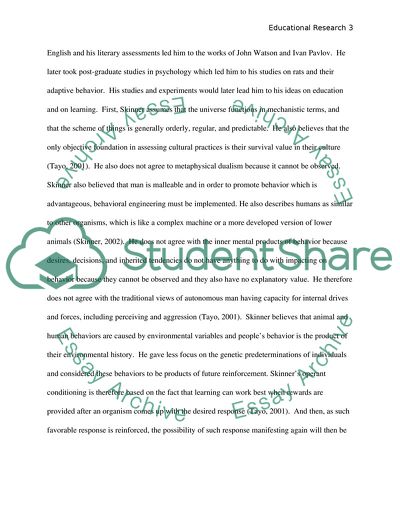Cite this document
(“Skinner's and Piaget's Philosophies Research Paper”, n.d.)
Skinner's and Piaget's Philosophies Research Paper. Retrieved from https://studentshare.org/education/1757271-educational-research-paper
Skinner's and Piaget's Philosophies Research Paper. Retrieved from https://studentshare.org/education/1757271-educational-research-paper
(Skinner's and Piaget'S Philosophies Research Paper)
Skinner's and Piaget'S Philosophies Research Paper. https://studentshare.org/education/1757271-educational-research-paper.
Skinner's and Piaget'S Philosophies Research Paper. https://studentshare.org/education/1757271-educational-research-paper.
“Skinner's and Piaget'S Philosophies Research Paper”, n.d. https://studentshare.org/education/1757271-educational-research-paper.


